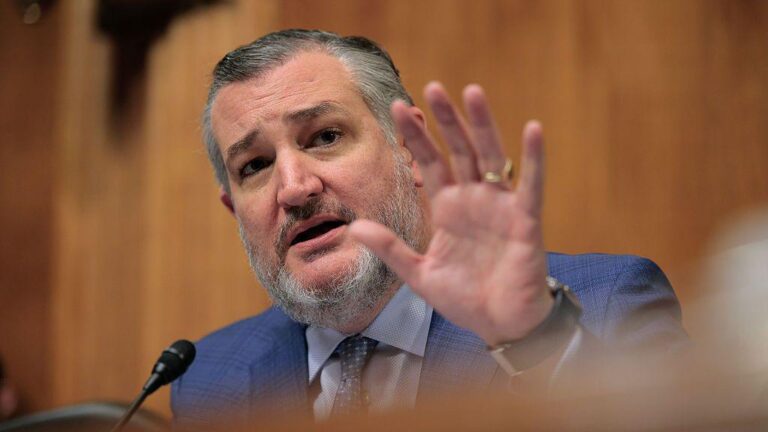Senator Ted Cruz’s Campaign Faces Backlash Over Unauthorized Use of Student Photos
A recent political advertisement released by Senator Ted Cruz’s campaign has sparked significant controversy after it was discovered that images of students were incorporated without obtaining proper authorization from the local school district. This revelation, first reported by Dallas News, has intensified debates about the ethical responsibilities of political campaigns when using images of minors, as well as the legal implications tied to privacy rights and consent.
Unauthorized Student Images in Political Ads: A Growing Ethical Concern
The political ad in question aimed to spotlight educational issues but instead drew criticism due to the unauthorized inclusion of photographs featuring students from the district. School officials have voiced strong objections, underscoring that the use of these images without parental or district approval breaches established privacy protocols and damages the trust between the community and political entities.
District representatives highlighted several critical issues stemming from this misuse:
- Privacy Breach: Deploying student images without explicit parental consent raises serious legal and ethical red flags.
- Potential Misleading Context: The ad’s framing may inaccurately imply the students’ endorsement or involvement in the political message.
- Community Trust Erosion: Such actions risk alienating families and educators, undermining collaborative relationships.
As of now, Senator Cruz’s campaign has not issued an official response, prompting calls from parents and education advocates for transparency and accountability. This incident underscores the increasing scrutiny on political advertising practices, especially regarding the protection of minors’ rights in public communications.
School District Demands Swift Removal and Formal Apology
The affected school district has formally condemned the unauthorized use of its students’ images in the campaign ad. Officials clarified that no permissions were granted for the photos to be used in any political context. In a public statement, the district demanded the immediate withdrawal of all advertisements containing the disputed images and requested a public apology to address the violation of student privacy and rights.
Key concerns emphasized by the district include:
- Infringement on Student Privacy: Using images without guardian consent contravenes district policies and may violate legal standards.
- Negative Community Impact: Parents and educators expressed disappointment, viewing the ad as an exploitative maneuver.
- Urgent Corrective Measures: The district insists on prompt removal of the ads and a formal acknowledgment of wrongdoing.
| Required Action | Deadline | Current Status |
|---|---|---|
| Complete removal of the ad from all media channels | Within 48 hours | Pending |
| Issuance of a public apology | Within 72 hours | Pending |
| Ongoing review of future campaign materials | Continuous | Scheduled |
Legal Perspectives on Privacy and Consent in Political Campaign Imagery
Legal authorities specializing in media and privacy law stress that the use of minors’ images in political advertisements without explicit parental or guardian consent is not only ethically questionable but may also violate federal and state privacy regulations. The Family Educational Rights and Privacy Act (FERPA), for example, protects student information and images, and unauthorized use can expose campaigns to legal challenges.
Attorney Jane Mitchell, an expert in media law, remarked, “Obtaining consent is essential when minors are involved. Unauthorized use can lead to litigation, especially if the images are used in a misleading or exploitative manner.”
When assessing such cases, legal experts typically consider:
- Origin of the Images: Were the photos originally intended for public distribution or protected under school policies?
- Consent Documentation: Was there formal permission from parents or the school district prior to usage?
- Risk of Misrepresentation: Does the ad falsely associate the students with a political viewpoint?
- Adherence to Ethical Standards: Does the campaign comply with established guidelines for political advertising?
| Legal Consideration | Primary Focus |
|---|---|
| Image Ownership | Consent must be obtained from the rightful owner |
| Privacy Regulations | FERPA safeguards student information and images |
| Ethical Advertising | Avoiding misleading or exploitative messaging |
Best Practices for Political Campaigns: Respecting Privacy and Ensuring Compliance
To maintain integrity and public trust, political campaigns must adopt rigorous standards when incorporating images into their promotional materials. Securing explicit, documented consent from all individuals featured‚ÄĒespecially minors‚ÄĒis both a legal obligation and an ethical imperative. Neglecting these responsibilities can lead to legal repercussions, damage to reputation, and loss of voter confidence.
- Obtain Written Consent: Always secure formal permission from individuals or guardians before using images.
- Understand Privacy Laws: Familiarize campaign teams with relevant local, state, and federal privacy regulations.
- Train Campaign Staff: Educate all personnel on the importance of respecting privacy and image rights.
- Conduct Regular Content Reviews: Implement audits to ensure all materials comply with legal and ethical standards before release.
| Recommended Action | Expected Benefit |
|---|---|
| Securing written permissions | Provides legal safeguards and builds voter trust |
| Privacy compliance training | Reduces risk of inadvertent violations |
| Pre-release content audits | Prevents unauthorized or inappropriate use of images |
Conclusion: Upholding Ethical Standards in Political Advertising
The controversy surrounding Senator Ted Cruz’s recent campaign advertisement serves as a critical reminder of the importance of respecting privacy rights and obtaining proper consent when using images, particularly those involving minors. As the school district continues to investigate the circumstances of the unauthorized photo usage, this case highlights the broader need for accountability and ethical conduct in political communications. Observers and constituents alike await further developments, underscoring the ongoing dialogue about privacy and integrity in political campaigns.







